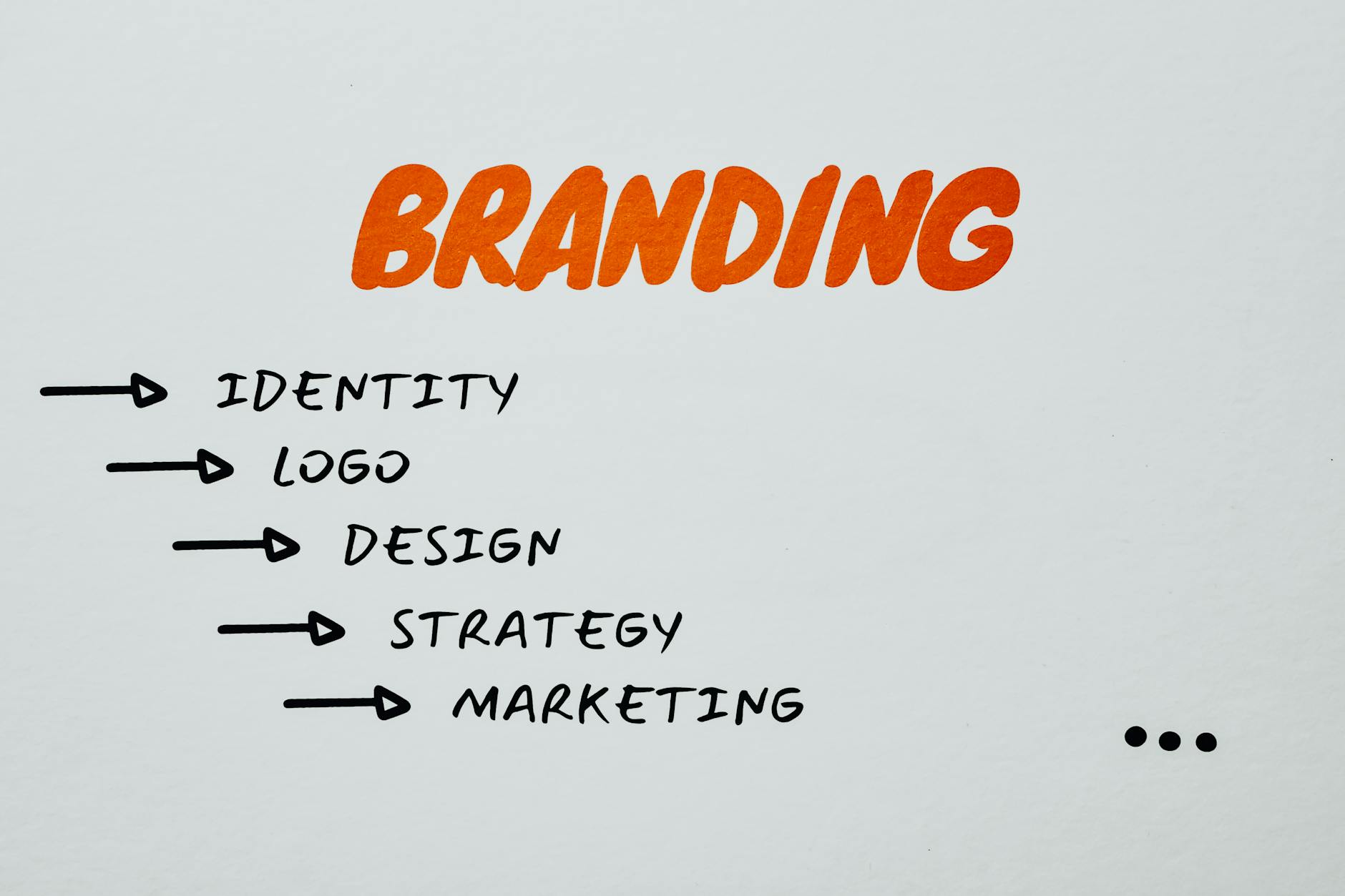Why Small Businesses Must Use PPC Advertising to Fuel Their Growth
Why Small Businesses Must Use PPC Advertising to Fuel Their Growth
Why Small Businesses Must Use PPC Advertising to Fuel Their Growth
Startling as it may be, many small businesses still overlook the potential of PPC advertising. Wonder why that is? For those looking to expand their reach without breaking the bank, PPC can be an essential tool. This form of online advertising allows you to pay only when someone clicks on your ad, making it a cost-effective way to attract new customers.
In today’s competitive market, small businesses need every advantage to stand out. PPC advertising offers immediate visibility and targeted outreach, leveling the playing field against larger competitors. This post will explore the several benefits of PPC for small businesses, showing you how it can drive traffic, generate leads, and ultimately boost sales. It's time to harness the power of PPC and give your business the growth it deserves.
To learn more about effective PPC strategies, check out this video: The Best Pay-Per-Click Strategies For Small Businesses.
Understanding PPC Advertising
Pay-Per-Click (PPC) advertising is an efficient online marketing strategy that enables businesses to gain visibility quickly. This model allows you to pay a fee each time a user clicks on your ad. The great part? You only pay for measurable results, making it a smart investment for small businesses aiming to expand their reach.
Here’s a breakdown of what PPC is all about and what you need to know to create effective campaigns.
What is PPC?
PPC stands for Pay-Per-Click, a digital advertising model where advertisers only pay when their advertisements are clicked. Simply put, it’s a way to buy visits to your site rather than earning them organically. How does it work? When users search for specific keywords, your ads may appear at the top or bottom of search engine results. You choose relevant keywords and create engaging ads, leading to potential traffic for your website. Each time someone clicks on your ad, you pay a small fee, landing you in front of potential customers who are searching for what you offer.
To learn more about PPC, explore this resource: What Is PPC? Learn the Basics of Pay-Per-Click Marketing.
Key Components of PPC Campaigns
Building a successful PPC campaign involves various essential elements. Each component plays a critical role in ensuring your advertising efforts yield positive results. Here are the key components you should consider:
- Keywords: The backbone of any PPC strategy. Conduct thorough research to find keywords that best match your business, products, and services.
- Ad Copy: Your ad needs to grab attention instantly. Use language that speaks to your target audience and clearly states your value proposition.
- Landing Pages: The page users land on after clicking your ad should align with your ad's message. An effective landing page enhances the user experience and encourages conversions.
- Budget: Set daily or monthly limits to control your spending. Keep track of your costs to ensure you stay within your budget.
- Bids: Bids are how much you're willing to pay for each click. Higher bids can lead to better ad placements, but balancing bids with your budget is crucial.
For in-depth insights into the essential elements of successful PPC campaigns, check out this article: 5 Essential Elements of a Successful PPC Campaign.
Advantages of PPC for Small Businesses
When it comes to marketing, small businesses often struggle with finding effective strategies that yield fast results. Pay-Per-Click (PPC) advertising comes in as a strong solution, offering numerous benefits tailored to meet the needs of smaller enterprises. Here’s how PPC can make a significant difference.
Immediate Visibility and Traffic
One of the standout features of PPC is how quickly it generates visibility. Unlike organic strategies like SEO, which can take months to produce results, PPC campaigns can yield instant traffic to your website right after they launch. Picture this: you design an ad, set your budget, and as soon as it's live, customers start seeing it at the top of search results. It’s immediate gratification. This rapid visibility allows you to reach more potential customers without the long wait.
Imagine a customer types in a product you're selling. With the right keywords, your ad appears right away, steering traffic to your site and increasing the likelihood of conversions. For quick engagements and fast returns, PPC is an indispensable method.
Explore more about how PPC can elevate your presence in the market here.
Cost-Effectiveness of PPC
Small businesses often have restricted budgets. PPC stands out as a cost-effective solution. You can set a budget that works for you while only paying when someone clicks your ad. This pay-per-click approach ensures you aren't tossing your money into ads that may not generate returns.
With PPC, you can control your spending by setting daily or monthly caps. This budgetary control allows you to test ads and gather data before fully committing to larger financial engagements. Consider using PPC as a trial run before diving deeper into more expensive marketing strategies. It’s one of the few advertising methods where you only pay for actual engagement, making it easier to manage financial commitments.
Learn more about the affordability of PPC advertising here.
Targeted Reach and Audience Segmentation
Another vital advantage of PPC is its ability to target specific demographics and locations. You can tailor your advertising parameters to reach the right crowds. Whether you aim at an age group, interests, or geographic location, you gain precise control over whom your ads reach.
This targeted reach means your marketing dollars are maximized. Instead of casting a broad net, you're focusing on individuals more likely to convert because they are genuinely interested in your products or services. Don’t waste your ad spend on uninterested viewers; go directly to your ideal customer base. With PPC, the clarity of audience segmentation makes it easier for small businesses to connect effectively.
For further insights into effective targeting strategies, check out this article here.
Measurable Results
PPC campaigns come with robust analytics tools that allow small businesses to measure their advertising performance effectively. Tracking metrics like clicks, impressions, and conversions gives you specific insights into what is working and what needs adjustments.
The ability to see real-time results is crucial. If an ad is underperforming, you can quickly shift strategies or reallocate your budget to perform better elsewhere. It provides a level of accountability and responsiveness that traditional advertising methods often lack. This data-driven approach enables continuous improvement of marketing strategies tailored to your business needs.
To learn how to make the most out of PPC through monitoring and adjustments, explore this guide here.

Photo by Sora Shimazaki
Challenges Small Businesses Face with PPC
While PPC advertising offers numerous benefits, small businesses often encounter distinct challenges in its implementation. Understanding these roadblocks can help navigate the journey toward successful PPC campaigns.
Competition with Larger Companies
Small businesses often find themselves in fierce competition with larger brands that have more substantial advertising budgets. These bigger companies can easily outbid smaller firms for valuable keywords, pushing smaller budgets to lower ad placements. This disparity leads to reduced visibility, making it tough for small businesses to gain traction.
When larger companies dominate the ad space, small businesses risk losing customer interest. For example, if a fresh bakery competes against well-established chains for search terms, the likelihood of appearing on the first page diminishes. This challenging environment means small businesses must be strategic about their keyword choices and focus on niche markets.
To learn more about overcoming competition in PPC, check out this article: Challenges Small Businesses Face Managing PPC.
Budget Management and Bidding Strategies
Effectively managing a PPC budget is critical for small businesses. With limited resources, it’s essential to allocate funds wisely to maximize return on investment (ROI).
Without proper budget management, a small business can quickly deplete its advertising resources, yielding little to no results. It’s crucial to set daily or monthly spending limits and monitor expenses closely. Bidding strategy also plays a significant role. Small businesses should adopt smart bidding practices, like automated bidding options, that adjust based on performance and market trends.
Tips to effectively manage your PPC budget include:
- Set profitability goals to identify how much you're willing to spend.
- Monitor your campaigns regularly to understand what’s performing and what’s not.
- Experiment with bid adjustments based on time of day or location for better results.
For deeper insights into budget management and strategic bidding, check out this resource: PPC Budget Management Tips.
Ad Fatigue and Change in Consumer Behavior
Overexposure to ads can lead to ad fatigue, where consumers become desensitized to repetitive advertising. When users see the same ads too often, they may ignore them, significantly diminishing the effectiveness of previous campaigns.
Additionally, shifts in consumer behavior can make it tough for businesses to keep up. Factors like new market trends or seasonal changes influence what potential customers are searching for. Staying attuned to these shifts is vital for crafting relevant ad content.
To combat ad fatigue:
- Refresh ad creatives frequently to maintain engagement.
- Adjust targeting parameters based on current consumer interests.
Keeping track of what resonates with your audience ensures that your PPC efforts remain effective amid changing behaviors. Explore more about adapting to ad fatigue here.

Photo by Tima Miroshnichenko
Strategies for Successful PPC Advertising
Executing a successful Pay-Per-Click (PPC) advertising campaign requires thoughtful planning and execution. Here are key strategies to enhance performance and achieve desired outcomes.
Keyword Research and Selection
Choosing the right keywords is fundamental to your PPC success. Keywords serve as the bridge between what users search for and your advertisements. An effective keyword strategy involves conducting precise research to identify terms and phrases that your target customers are using.
Start by considering your business goals. Are you looking to drive brand awareness or increase conversions? Tools like Google Keyword Planner or SEMrush can help gauge search volume for potential keywords. Additionally, focus on long-tail keywords that might have lower competition but can deliver highly targeted traffic.
Why does proper keyword selection matter? Just think about it—when a customer types a query, they are looking for something specific. If your ads aren’t showing up for the right terms, potential leads could be lost. Use the right keywords to ensure visibility when customers are searching for solutions you offer. For an in-depth guide on finding the perfect keywords for your PPC campaigns, read this PPC Keyword Research Guide.

Photo by Eva Bronzini
Creating Compelling Ad Copy
Next up, your ad copy must stand out to drive clicks. What makes an ad appealing? Clear, concise, and compelling messaging is key. Highlight your unique selling points in a straightforward manner.
Begin with an engaging headline that captures attention. Use numbers or emotional triggers that resonate with your audience. Also, ensure your ad copy aligns with the keywords you selected. If someone searches for "affordable dog grooming services," make sure your ad reflects that promise.
Don't forget to include a strong call to action (CTA). Phrases like "Get Started Today" or "Sign Up Now" can drive urgency. However, be sure your CTAs match the intent of the searcher. To polish your ad copy, follow best practices found in 7+ PPC Strategies Your Business Needs.
Utilizing A/B Testing
To ensure optimal performance, A/B testing is essential. This practice allows you to compare different ads and determine which performs better. Why choose one approach over another when you can test both?
Create two variations of your ad. Change one element—such as the headline or CTA—and observe which ad garners more clicks. Ensure that your testing environment is controlled. Test one variable at a time to effectively gauge the impact of each change.
Remember, the testing process isn’t a one-time activity. Continuously assess your ads to adapt to changing market behavior. A proactive approach can lead to better conversion rates over time. For more tactics on A/B testing in PPC strategies, check this resource How to Create an Effective PPC Strategy.
By applying these strategies, small businesses can pave the way for successful PPC advertising, eyeing growth and achieving a strong return on their marketing investment.
Case Studies of Successful PPC Campaigns
Examining real-world examples of PPC success illustrates the potential this advertising model holds for small businesses. Let's explore how two distinct businesses effectively harnessed PPC advertising to achieve impressive results.
Example 1: A Local Retailer
A small local retailer specializing in handmade jewelry turned to PPC advertising to increase its online sales. This retailer created targeted ads on Google that highlighted special promotions and seasonal collections. By focusing on specific keywords related to handcrafted jewelry and local shopping, the ads gained significant traction.
Within a few weeks, the store saw a 50% increase in website traffic and a 30% uptick in online sales. The ad copy emphasized phrases like “handmade with love” and “unique gifts in [city name],” which truly resonated with customers looking for original gift ideas. Furthermore, using location targeting ensured that the ads were primarily displayed to users in nearby areas, enhancing foot traffic to their physical store.
The success of this campaign highlights the importance of tailored messaging and targeted approach, allowing the retailer to stand out outside the realm of larger competitors.
For further details on small business success stories in PPC, check out this resource: PPC Optimization Case Studies: 5 Best Examples.
Example 2: A Service-Based Business
A new landscaping business aimed to generate leads in a competitive market. To achieve this, they crafted compelling PPC campaigns focused on local home and garden services. Populating their ads with specific keywords—such as “affordable landscaping in [location]”—helped them reach potential customers actively searching for landscaping options.
The ads prominently featured a limited-time offer for a free consultation, drawing users to take immediate action. As a result, their campaign achieved a 75% increase in inquiries over three months, leading to several new contracts. The business also utilized negative keywords to filter out irrelevant searches, ensuring that their budget was spent effectively only on leads most likely to convert.
This case exemplifies how strategic ad placements and offers can significantly influence customer engagement, leading to meaningful business growth.
For more insights into successful PPC campaigns, you can visit PPC Case Studies & Success Stories.

Photo by cottonbro studio
Conclusion and Key Takeaways
Understanding the importance of Pay-Per-Click (PPC) advertising is essential for small businesses seeking growth. In a landscape where competition is fierce, leveraging PPC can help you gain visibility and attract qualified customers. Here’s a summary of the key points to remember as you consider integrating PPC into your marketing strategy.
Importance of PPC for Small Businesses
PPC advertising has unique advantages that particularly benefit small businesses. Here are some highlights:
- Instant Visibility: With PPC, your ads can appear at the top of search engine results immediately. This speeds up your exposure compared to organic search strategies, which can take months to develop.
- Cost Control: You set the budget. You only pay when someone clicks on your ad, making it a flexible and budget-friendly approach for limited resources.
- Targeted Advertising: Specific demographics and locations can be targeted, allowing your message to reach those most likely to convert. It prevents wasteful ad spending and hones in on potential customers.
- Measurable Results: Advanced analytics tools provide insights into your campaign performance. This tracking helps you adapt strategies based on real-time data, enhancing your effectiveness.
For a deeper dive into PPC for small businesses, check out this insightful article: Why Your Small Business Needs PPC - Exposure.
Key Strategies for Success
Implementing effective PPC campaigns involves more than just setting up ads. Here are a few strategies to consider:
- Thorough Keyword Research: Choose relevant keywords that your target audience will use. Tools like Google Keyword Planner can help identify the best options.
- Compelling Ad Copy: Create ads that stand out. Use engaging headlines that reflect your unique selling points, and include clear calls to action that encourage clicking.
- A/B Testing: Continually test different ad variations to find out what resonates best with your audience. Even minor adjustments can lead to improved engagement and conversions.
Don't underestimate the effort that goes into keyword selection and audience targeting. These foundational elements shape the success of your campaigns.
Learn about comprehensive PPC strategies by visiting: Benefits of pay per click advertising.
Encouragement to Explore PPC
The urgency surrounding PPC lies in its ability to help you gain a competitive edge. Are you ready to explore the untapped potential of your small business through this powerful advertising approach? Understanding the dynamics and implementing the strategies discussed can lead to meaningful growth.
With the correct plan, PPC can transform your marketing efforts and allow you to connect effectively with customers ready and eager to engage.

Photo by RDNE Stock project
Comments
Post a Comment